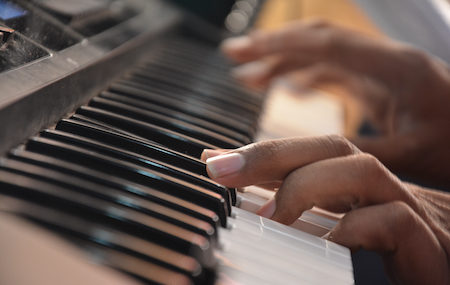Learning the piano can be a rewarding experience. It can also be frustrating.
You reach a plateau, and everything seems to be complicated. The more you try, the more you feel like you’re taking a step backward.
If you feel like you’re not making the progress you were hoping would happen, it might be because:
You’re not practicing enough
You may have a routine down for your practice time. But you may be stuck in a rut with how you’re practicing. Practicing doesn’t lead to perfection. Perfect practice does. It’s more important to make headway with your learning curve than to follow the same routine.
If you’re bored with scales, how can you change them up? If you dread 30 minute routines because your mind drifts to other activities, try breaking it up to 15 minutes twice per day.
Do a little research, or talk with your piano instructor about rescheduling your practice routine. You’ll find yourself enjoying the piano once again with a few changes.
You have too many distractions
Do you find yourself thinking of other things while playing? Find a way to put distractions aside before you play.
Even if you rely on your phone for practice apps, can you put other tools on hold, so you’re not interrupted by dings, bells, and whistles? It’s one of the biggest distractions for productivity across the board – putting it aside may help you practice better each day.
You’re playing the wrong music
Maybe you picked up sheet music because you love the song, but if it’s beyond your capabilities, it may be more frustrating than motivating you.
You should also work with your instructor to select music that motivates you to want to play more. While every piano player should learn the basics, you should also be able to play things you love.
You don’t have the right motivation
Maybe you learn better with a group. Maybe you need a new instructor. Maybe it’s time to show off your skills by scheduling a recital or concert.
We all have different things that motivate us. Before you give up on your dream to play the piano, ask yourself what would make you fall in love with it once again.
In today’s world, there are many ways to utilize your piano knowledge and give you motivation to become a better player.
Learning the piano is a personal journey, one that changes consistently throughout the years. Keep moving forward – it’s a skill you can use for a lifetime. Enjoy!





